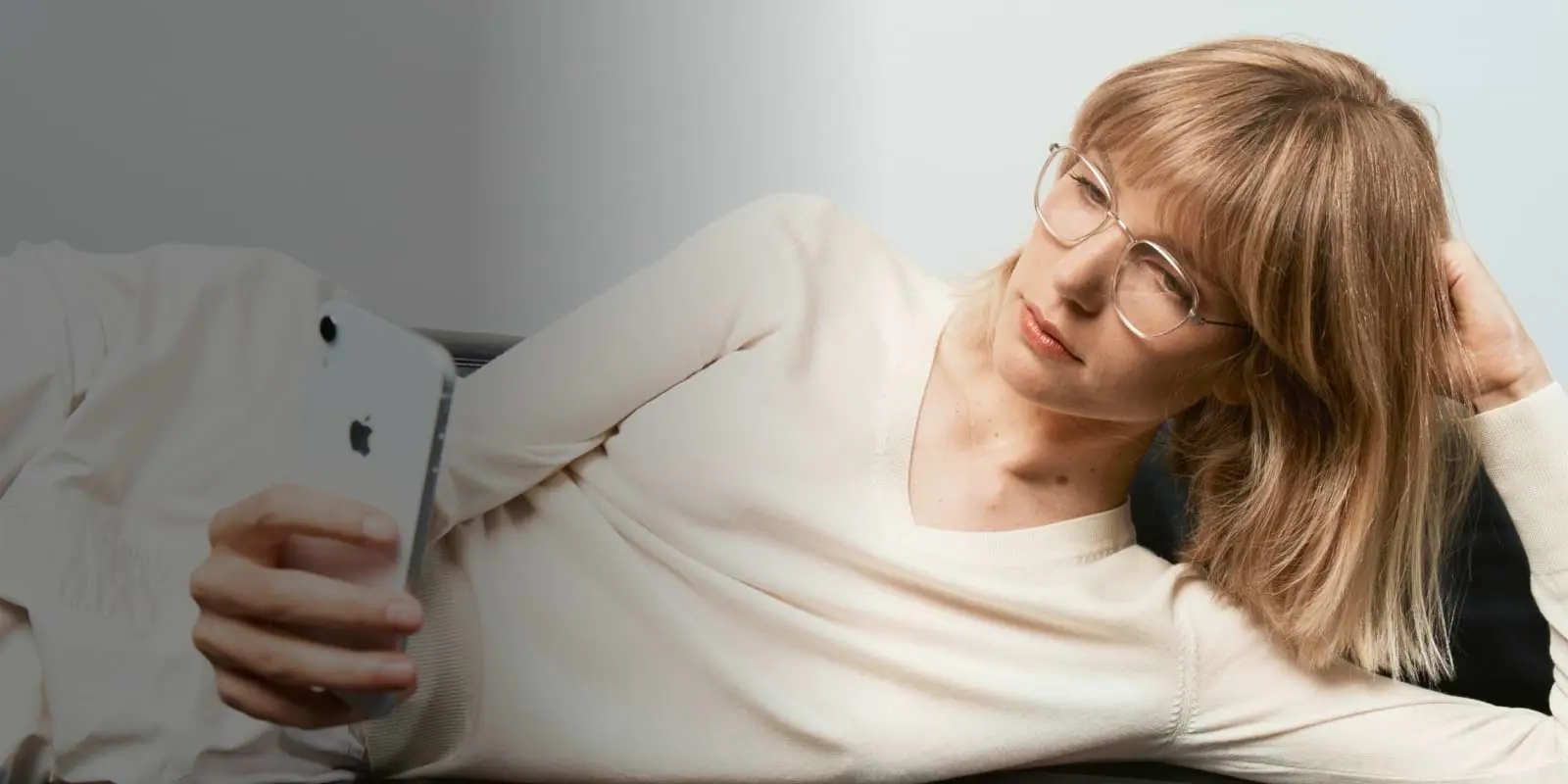What is blue light?
Blue light is a part of the spectrum of light visible to our eyes.
It is the most energetic light of the visible spectrum. The more energetic the light, the more dangerous it is for the eye. Hence the importance of protecting yourself with anti blue light glasses. The blue light is located just after the UV from which we protect ourselves with sunglasses.
In the visible light spectrum (see graph below), blue light is divided into two very different types of radiation.
The "blue-turquoise" light (from 455 nm to 495 nm) is recognized as vital to the body. It contributes to our awakening, our falling asleep, our well-being in a general way. It acts directly on melatonin.
On the other hand, blue-violet light (from 380 nm to 455 nm) accelerates the aging of our cells and generates headaches/eye strain. Partly filtered by the crystalline lens, it penetrates deep into the eye and hits the retina in its central part.

Where does blue light come from?
Blue light is present in the natural light emitted by the sun as well as all the LED lighting that equips our screens. Blue light is therefore omnipresent in our daily lives, at work, in our leisure time and elsewhere. The evidence of its danger is accumulating over the years.
Why protect yourself?
High energy blue light penetrates deep into the eye and can cause harmful effects.
Compare the wavelengths of natural light with those of screens.

What are the effects?
The harmful effects of blue light are numerous and range from difficulty falling asleep to difficulty concentrating, including headaches, visual fatigue and increased risk of AMD (aging of the retina).
Insomnia
Blue light would have a negative impact on sleep cycles. Blue light increases the activity of the photosensitive cells, it simulates to the body and the brain that it is still daytime and thus, that it is not the time to sleep. The production of melatonin is thus limited.
Recurrent headaches
Ophthalmic migraines are constricting headaches. Related to visual fatigue, they emanate from visual discomfort: the retina forces to process light and adjust itself, which reduces the blood flow to the eye and causes pain.
70% of adults experience visual fatigue during prolonged exposure to screens.
Visual fatigue
Blue light produces a lot of energy that is very tiring for the exposed eye. When you work on a computer, if you feel the need to reduce the brightness or play with the contrasts, you are experiencing visual fatigue. Similarly, if your vision becomes blurred, your eyes seem dry and itchy.
Risk of AMD
An increased risk of AMD (age-related macular degeneration) Some medical studies have shown that overexposure to blue light accelerates the destruction of photoreceptor cells in the retina.
How to protect yourself?

As we protect ourselves from the sun with sunglasses, it is advisable to protect ourselves from screens with anti blue light glasses. These glasses filter the light emanating from the screens and reduce the impact of the screens on the eye by filtering a large part of the blue light.